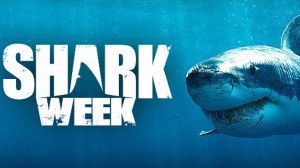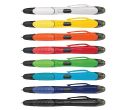Discovery Channel took a Bite out of Shark Week’s Branding

Discovery Channel’s 26th Annual Shark Week has taken the world by storm this past week. Each year, as social media reach and popularity grows, it affects media in new ways. This year Shark Week has been a media sensation, hitting social media with the speed of a shark breach. Unfortunately for Discovery Channel, their Shark Week brand took a big hit with their premiere episode that aired Sunday night.
Megalodon – The Mega-Mistake
Much to the dismay of Shark Week fans and shark experts, they launched the week-long celebration about sharks with a “Mockumentary” about the prehistoric Megalodon shark, speculating whether or not it could still be alive and swimming in our oceans today. The show, titled Megalodon: The Monster Shark Lives’ explored the idea that a giant, whale eating dinosaur shark could possibly still be swimming in modern times, but has just not been discovered in the fast, unexplored ocean. Over 4.8 million viewers tuned in, you can read a fun comparison that highlights how many people that actually is. Unfortunately, for the Discovery Channel, cable viewing records were not the only thing broken; the hearts of their fans were also broken as well. Shark researchers, shark experts, and scientists were more than disappointed.
The Fans Bite Back
Needless to say, Discovery Channel and Shark Week both fell victim to a feeding frenzy of disgruntled fans and shark experts that attacked through social media with the ferocity of a hungry Great White Shark. Scientists accused the channel’s departure from science fact to be ethically and ecologically wrong. Many shark experts took to Twitter and Shark Week’s Facebook page to let them know that the Megalodon Shark is as much alive as T-Rex. The shark researchers’ fears were realized when the general public’s opinion was most definitely skewed by the fake show. Unfortunately 76% of the people who answered Discover Channel’s poll asking viewers if they believed that the giant shark still existed but was undiscovered. As fans realized that the show was a mockumentary (similar to a popular mockumentary on mermaids aired last year by the network’s partner channel, Animal Planet) they certainly voiced their negative opinions on social media. Discovery Channel’s Twitter feed and Facebook accounts were both inundated with negative comments and complaints, as were the separate accounts for SharkWeek on Twitter and Facebook. Discovery Channel has tried to justify their “fantasy” programming stating that it highlights the possibilities of “what ifs” of the vast and unexplored oceans of the planet. Even days later, there is still a lot of negative feedback seen more on Discovery Channel’s social channels than Shark Week’s separate social channels. Will Discovery Channel be able to recover the bite taken out of their brand and their reputation? This remains to be seen.
New Competition in the Food Chain?
Considering all of the negative attention after Sunday’s fake faux-pas, Discovery Channel need to be on their toes because competitor network Nat Geo Wild, run by the non-profit National Geographic Society, launched Shark Fest programming to compete with or piggy back off of the shark mania of the week. The timing might have been right for the new Shark Fest to gain some ground on the media giant that is Shark Week, since they have been praised by fans for focusing on scientific and factual shark education and conservation programming. However, Shark Fest and Nat Geo Wild have a long ways to go to catch up to the social media engine driving much of the buzz behind Shark Week. Shark Fest was definitely lacking in the social arena. There was almost no social support other than through Nat Geo Wild’s regular social channels on Twitter and Facebook. GetGlue.com did not even have a way to check into the new programs as they aired. Conversely, Shark Week, had promotions, stickers, and special features on the popular social network for television shows and movies. To illustrate the difference in reach, here are two screen shots taken from Twitter during prime time programming on both networks.


During the same amount of time there were 250 results for a search on #SharkWeek vs. a search on Twitter for #SharkFest, which yielded only 39 tweets. Part of the drive behind Shark Week’s social media success is the live talk show that aired each night after the programming called ‘Shark After Dark’. If Nat Geo Wild had a better social presence, especially because of Discovery Channel’s slip up with their choice of programming, Shark Fest likely lost a great opportunity at picking up momentum and traction. What is the lesson here? Do not count out social media when it comes to mainstream media events.


















